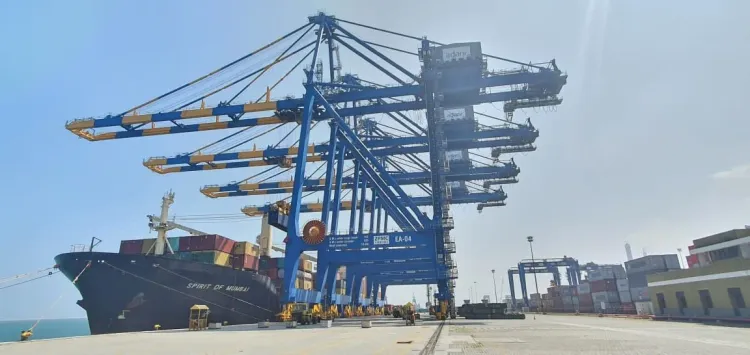Adani to Independently Fund Sri Lankan Port Initiative, Cancels US DFC Funding Request

Mumbai, Dec 10 (NationPress) Adani Ports and Special Economic Zones (APSEZ) Ltd stated on Tuesday that it will leverage its own financial resources to finance a port project in Sri Lanka, foregoing the need for funding from the United States.
In a statement to the stock exchange, Adani Ports indicated that the project "is on schedule for commissioning by the start of next year".
“We are pleased to announce that the Colombo West International Terminal (CWIT) project in Sri Lanka is advancing effectively and is set for commissioning by early next year,” expressed the leading firm of the Adani Group.
“The financing for the project will come from the company’s internal accruals and its capital management strategy. We have officially withdrawn our request for financing from the US Development Finance Corporation (DFC)," the statement continued.
Last November, the US International Development Finance Corporation had agreed to provide a $553 million loan to facilitate the development, construction, and operation of CWIT at the Port of Colombo in Sri Lanka.
The CWIT is being constructed by a partnership between Adani Ports, the Sri Lankan conglomerate John Keells Holdings Plc, and the Sri Lanka Ports Authority (SLPA).
The project commenced in September 2021, when Adani Ports entered into an agreement with the Sri Lanka Ports Authority and John Keells Holdings, committing over $700 million to enhance the capabilities of the Colombo Port.
The CWIT will emerge as Sri Lanka's largest and deepest container terminal, featuring a quay length of 1,400 metres and a depth of 20 metres alongside.
The Port of Colombo stands as the largest and most active trans-shipment port within the Indian Ocean, operating at over 90 per cent capacity since 2021, indicating a pressing need for additional capacity.
This new terminal aims to support the growing economies in the Bay of Bengal, capitalizing on Sri Lanka's strategic location on significant shipping routes and its closeness to these expanding markets.
The anticipated annual cargo handling capacity of this new terminal is projected to surpass 3.2 million.










